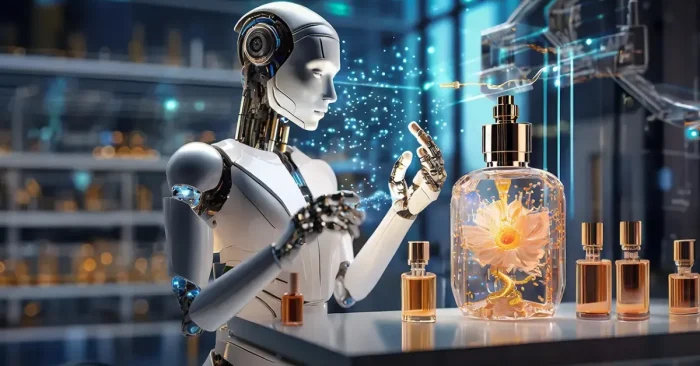Overview
AI tools for fragrance creation are transforming how perfumes and scents are designed, making the process more innovative and precise. Traditionally, fragrance development required years of expertise and experimentation, but AI speeds up the process by analyzing millions of scent combinations and predicting which blends will appeal to specific audiences. These tools use data from customer preferences, cultural trends, and market insights to generate unique and personalized fragrances. By minimizing trial and error, AI reduces costs and enhances creativity. From luxury perfume brands to small businesses, AI fragrance tools help craft scents that stand out in a competitive market.
1. Scent Composition Analysis
AI can analyze chemical compounds and their combinations to predict scent outcomes. This helps perfumers create balanced fragrances that align with desired moods and customer expectations. Instead of blindly experimenting, creators get science-backed insights that save both time and resources. Such analysis ensures every fragrance has a consistent, appealing structure.
2. Personalized Perfume Recommendations
Fragrance creation tools powered by AI can suggest personalized blends based on user data such as lifestyle, preferences, or even skin chemistry. Customers can get perfumes designed specifically for them, making each scent unique. This level of customization enhances customer loyalty and satisfaction in a way traditional methods cannot achieve.
3. Market Trend Forecasting
AI tools track global fragrance trends by analyzing social media, fashion, and cultural data. By understanding what scents are gaining popularity, perfume brands can create products aligned with future consumer demand. This gives businesses a competitive edge and ensures their fragrance collections remain relevant in a dynamic market.
4. Ingredient Optimization
AI assists in selecting the most effective ingredients while considering safety, sustainability, and cost. By analyzing thousands of raw materials, it suggests combinations that maximize fragrance quality. This not only helps perfumers craft better scents but also reduces dependency on rare or expensive resources, supporting eco-friendly perfume production.
5. Virtual Testing Environments
AI enables virtual fragrance testing without needing physical samples. Advanced algorithms simulate how different combinations would smell, allowing creators to refine ideas before actual production. This reduces waste and speeds up the design cycle. Virtual testing is especially beneficial for brands seeking efficiency and sustainable production methods.
6. Customer Sentiment Analysis
AI tools can analyze customer reviews and feedback to determine which fragrances are well-received. By identifying patterns in consumer preferences, brands can adjust existing scents or develop new blends that match customer desires. This ensures products are always customer-centered, improving brand reputation and driving higher sales.
7. Creative Assistance for Perfumers
Rather than replacing human perfumers, AI acts as a creative assistant by suggesting innovative combinations that might not be obvious. This sparks inspiration and helps experts explore new olfactory directions. The collaboration between human creativity and machine intelligence leads to breakthrough fragrances that appeal to diverse audiences.
8. Sustainable Fragrance Development
AI supports sustainability by identifying eco-friendly alternatives to traditional ingredients. For instance, instead of using endangered natural resources, AI finds synthetic or renewable substitutes with similar olfactory properties. This allows brands to offer sustainable perfumes without compromising on scent quality, appealing to environmentally conscious consumers worldwide.
9. Rapid Prototyping
AI speeds up the prototyping phase by generating multiple fragrance formulas in seconds. Instead of months of manual trials, perfumers can test different scent families quickly. This efficiency shortens time-to-market, enabling brands to launch innovative fragrances faster while keeping costs under control and staying ahead in the competition.
10. Enhanced Consumer Engagement
AI-powered fragrance apps let consumers co-create scents by answering questions or sharing lifestyle preferences. The tool then recommends or creates a personalized formula, giving customers an engaging and interactive experience. This not only strengthens brand-consumer relationships but also makes fragrance selection more enjoyable and memorable for buyers.
FAQs
Q1: Can AI replace human perfumers?
AI enhances creativity and efficiency but does not replace the artistry of human perfumers. Instead, it acts as a supportive tool.
Q2: Are AI-created fragrances unique?
Yes, AI can generate customized scent combinations that are often highly unique and tailored to individual preferences.
Q3: Do AI fragrance tools reduce costs?
Absolutely, by cutting down trial-and-error and minimizing ingredient waste, these tools significantly lower development expenses.
Q4: Is AI in fragrance creation sustainable?
Yes, AI encourages sustainable practices by identifying eco-friendly alternatives and optimizing ingredient usage.






